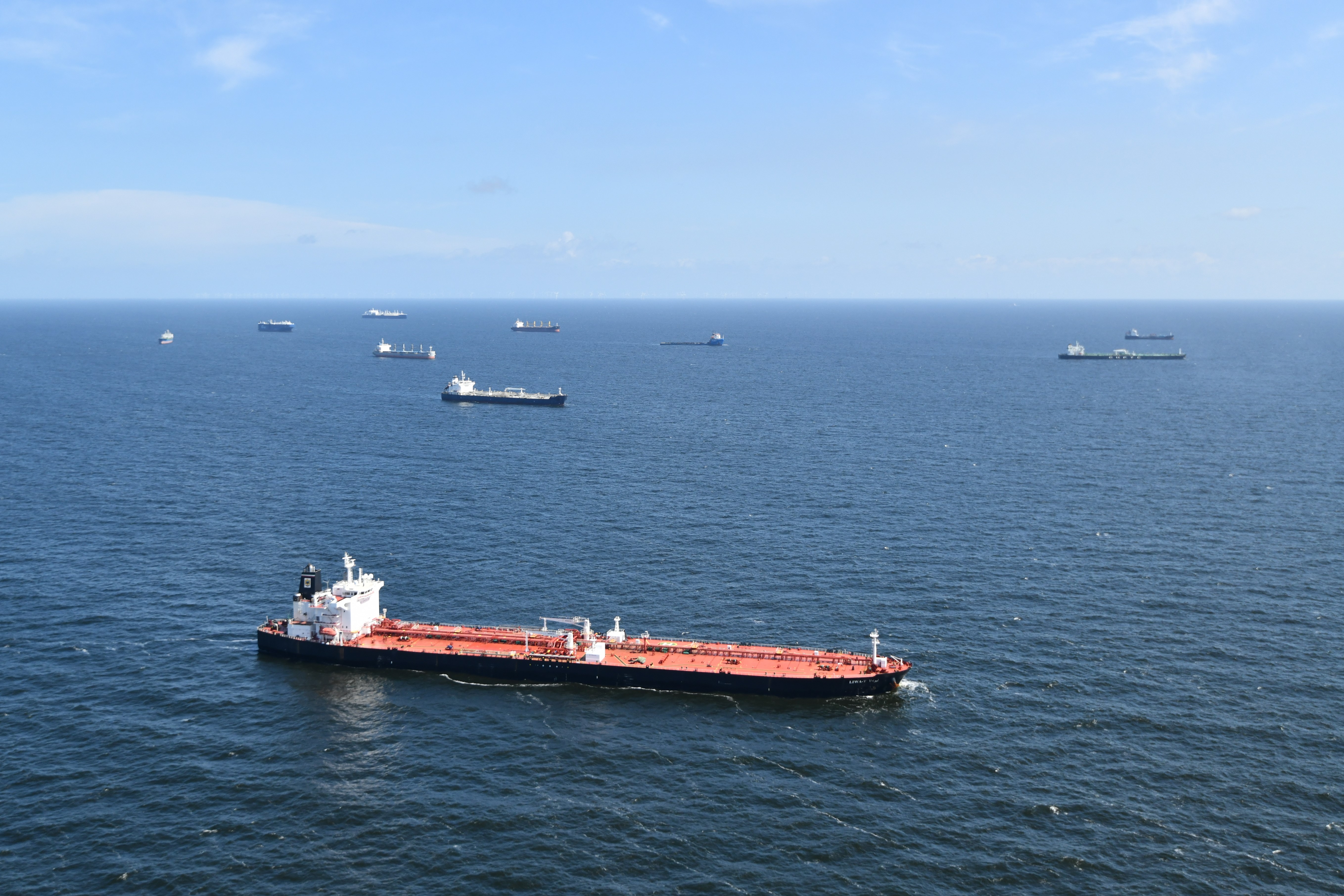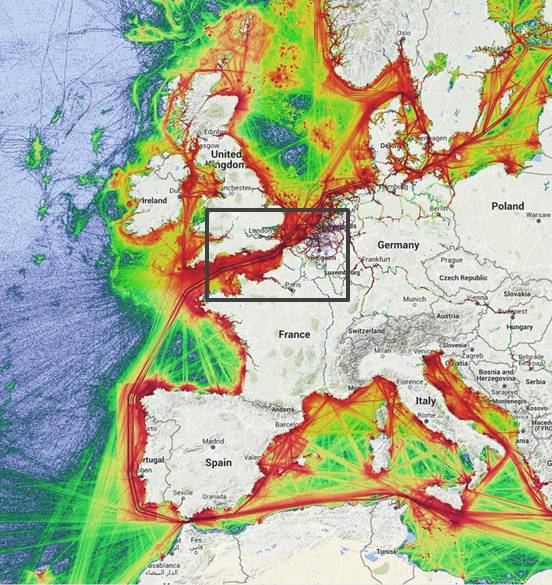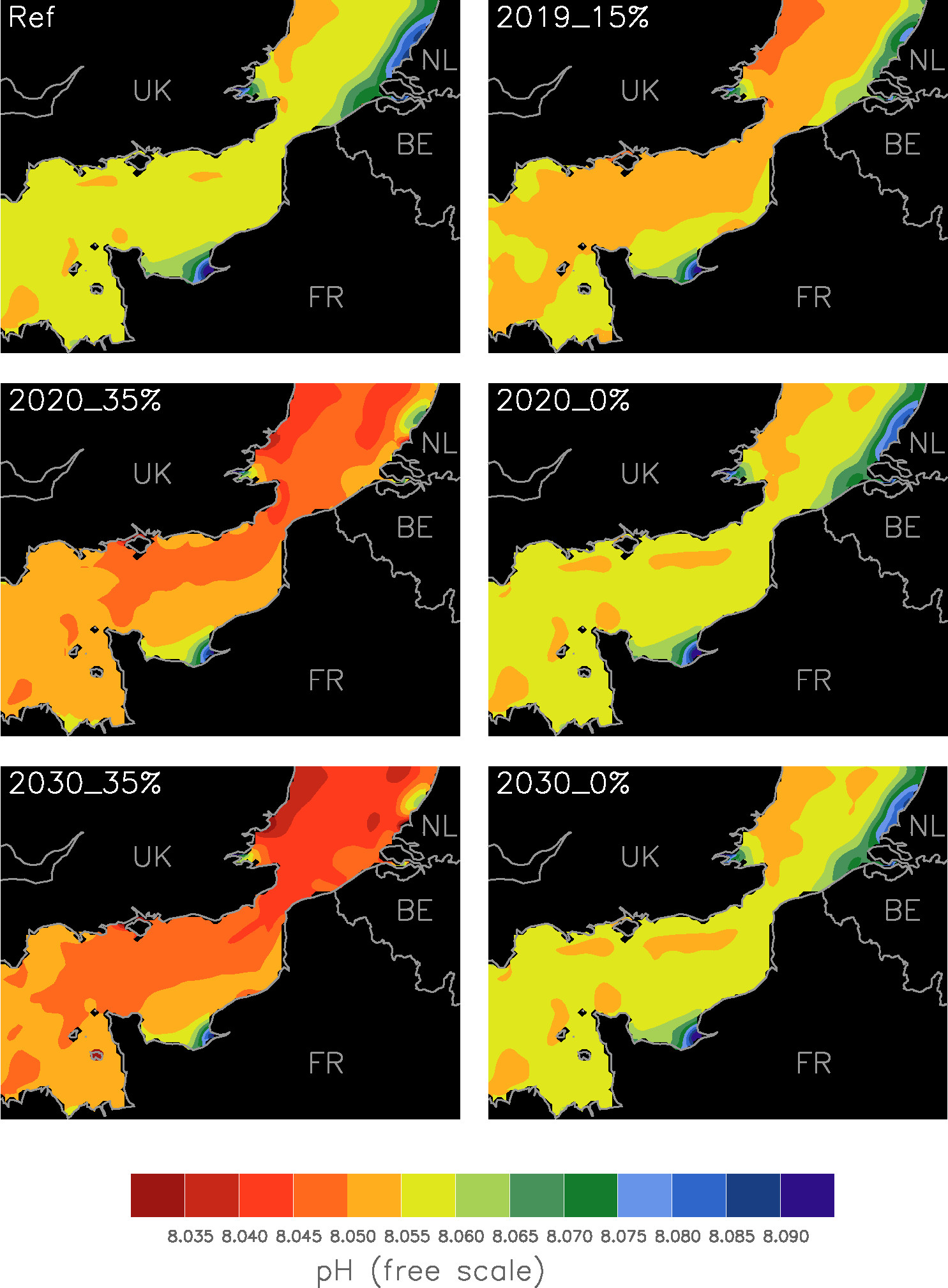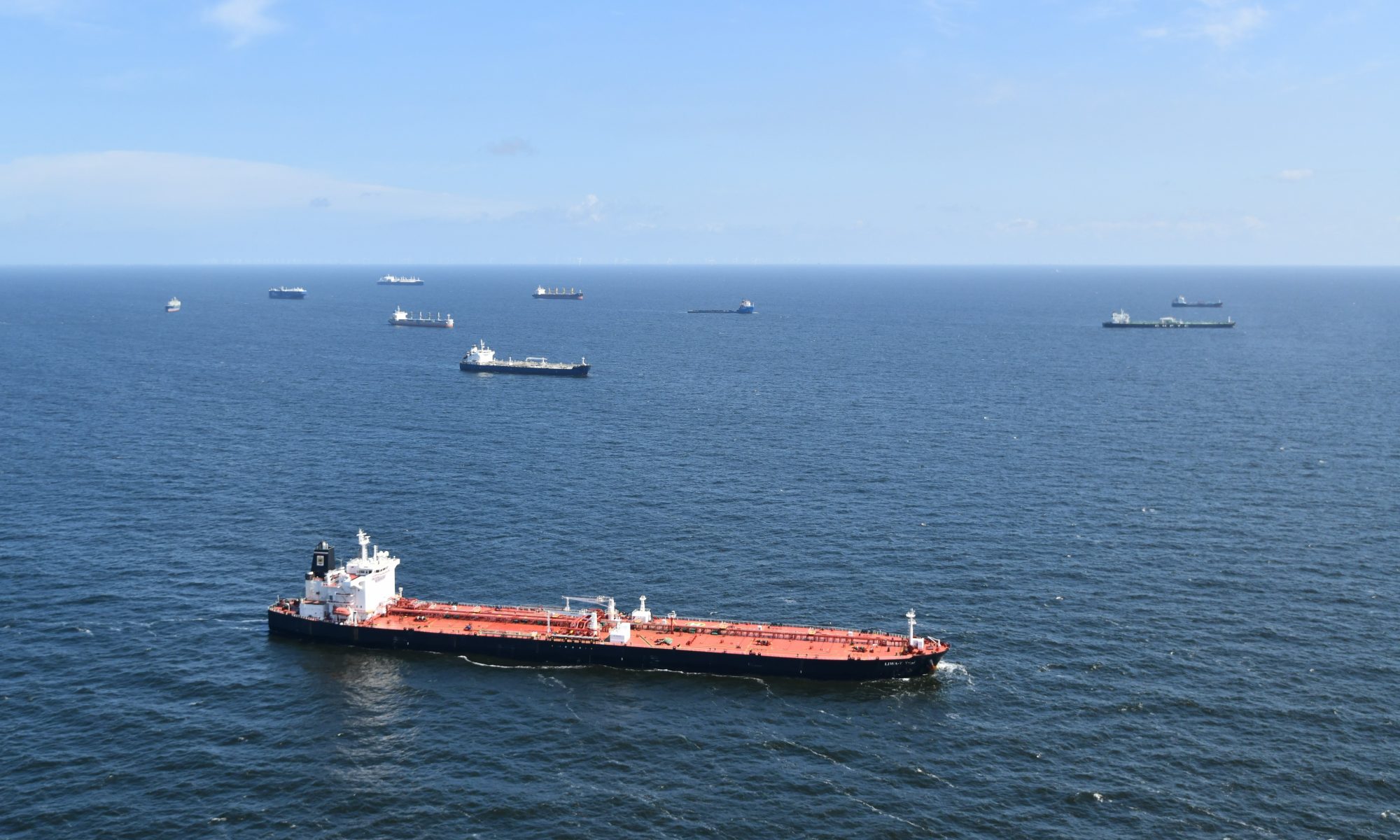Sulphur Oxides (SOx) in atmospheric ship emissions resulting from the burning of fuel are known to be harmful to human and ecosystem health. Since January 1st, 2020, the International Maritime Organisation (IMO) further lowered the limit for sulphur content in ship fuel, resulting in an increased number of exhaust gas cleaning systems (scrubbers) installed on board of ships. These systems reduce the sulphur content in the air emissions, but some discharge the SOx directly in the water. Here they contribute to ocean acidification and potentially create problems for a range of marine organisms. The Royal Belgian Institute of Natural Sciences used a biogeochemical model to quantify the potential impact in the southern North Sea. The results showed that the largest changes occur in areas of high traffic density, such as along the Belgian and Dutch coasts and in the vicinity of large harbours, where the changes are sufficiently big to contribute to environmental degradation and a loss of economic potential.

Sulphur Oxides (SOx) in atmospheric ship emissions, resulting from the burning of fuel, are known to cause respiratory problems, lead to more acid rain and contribute to ocean acidification. As such they are harmful to both human and ecosystem health. To address this problem, the International Maritime Organisation (IMO) further lowered the limit for sulphur content in ship fuel to 0.5% since January 1st, 2020 (from 4.5% in 2005-2011 and 3.5% in 2012-2019). The regulations are even more strict in the North Sea Sulphur Emission Control Area, to which the intensively navigated Belgian waters belong, where the sulphur concentration in the fuel cannot exceed 0.1%. To comply with the regulations, solutions include the use of low sulphur fuel and the application of other methods that limit the SOx air emissions caused by the burning of high sulphur fuel to the same extent.
Scrubbers
Due to the price difference between high and low sulphur fuels, the installation of exhaust gas cleaning systems known as scrubbers, is economically more cost-effective than reducing the sulphur content in the fuel (in normal economic conditions). Therefore, the new regulations tend to result in an increased number of scrubbers being installed on board of ships. Scrubbers are devices that ‘wash’ the exhaust gases of ships and remove certain particulates or gases from it, in this case the sulphur oxides. The resulting wash water can either be collected on board (closed-loop scrubber) or be discarded in the open sea (open-loop scrubber), whereas hybrid scrubbers can switch from open to closed modes. The cheaper open-loop scrubbers are more commonly applied than closed-loop scrubbers, leading to a displacement of the sulphur emissions from the air to the water.

Ocean acidification
Despite the positive effect of scrubbers on air pollution, questions arise on their potential impact on the marine environment. When the wash water from open-loop scrubbers is discharged into the sea, the SOx are neutralized by the sea water. This however lowers the pH of the sea water (a lower pH means more acidic water) and thus contributes to the acidification of the ocean. This process adds to the ongoing climate-change driven ocean acidification resulting from the uptake of atmospheric CO2. Negative effects of ocean acidification have already been observed affecting marine organisms such as clams, oysters, prawns and even fish. More acidic waters compromise the creation of shells and skeletons and can lead to the dissolution of existing structures. Furthermore, some studies have shown effects on the ability of fish to smell, hear and see, and their general cognitive functioning. More acidic waters may also have an economic impact for fisheries and aquaculture, as quality loss has been shown for certain species of prawns and clams, in terms of taste, texture, appearance and nutritious properties.
Situation in the southern North Sea
On behalf of the Federal Public Service Mobility and Transport, the Royal Belgian Institute of Natural Sciences performed a study in which an advanced biogeochemical model was used to quantify the potential impact of SOx discharges from maritime traffic on water acidification in the southern North Sea. “In the English Channel and the Southern North Sea, the results show a pH decrease between 0.004 and 0.010 pH units (on a scale of only 14 units) among different maritime traffic scenarios” says Valérie Dulière, lead author of the study. “In areas of high traffic density, such as the shipping lanes along the Belgian and Dutch coasts and in the vicinity of large harbours, the pH changes can be 5 to 12 times larger than average. The modelled changes indicate a potential negative impact on the water quality in ports, estuaries and coastal waters” Dulière adds.

The estimated pH decrease attributed to the shipping sector is also significant when compared to the ongoing acidification resulting from climate change (0.0017-0.0027 pH units per year). The pH change in response to SOx pollution due to shipping with open-loop scrubbers is 2 to 4 times bigger than the contribution of climate change when averaged over the whole study area, and up to 10 to 50 times bigger in more local areas. The impact of ocean acidification due to maritime traffic should therefore be considered in ecosystem assessment studies, together with climate change.
The full report of the study can be consulted here: Potential impact of wash water effluents from scrubbers on water acidification in the southern North Sea_Final report.
Videos of the presentation of the study are also available:
– part1_Scientific background and study context
– part2_Methodology and assumptions
– part3_Results and conclusions
Given the important modelling conclusions, a precautionary approach is recommended. Policy, science and industry continue to work together to find ways to reduce the impact of sulphur compounds in the emissions and wash water discharges of ships.
After this study was completed, the COVID-19 crisis started to reshape the year 2020 in an unforeseen way. It is observed that the ship traffic density estimation for the year 2020 on which the calculations were based to estimate the quantity of SOx in emissions and wash water discharges is lower than expected. Nevertheless, this study still brings some very useful information on how the use of open-loop and hybrid (set in open-mode) scrubbers can contribute to the acidification of the southern North Sea, in a business as usual situation. It is also noted that the current unfavorable economic climate led to the cancellation of many orders for scrubber installations, and it is hoped that the companies concerned will consider switching to the use of low sulphur fuel when resuming normal operations.
The Royal Belgian Institute of Natural Sciences is also heavily involved in the monitoring of the sulphur emissions from ships at sea. More information on this can be found on the new website of the aerial survey team, the video that focuses on sulphur emission monitoring, and in the annual report 2019.

